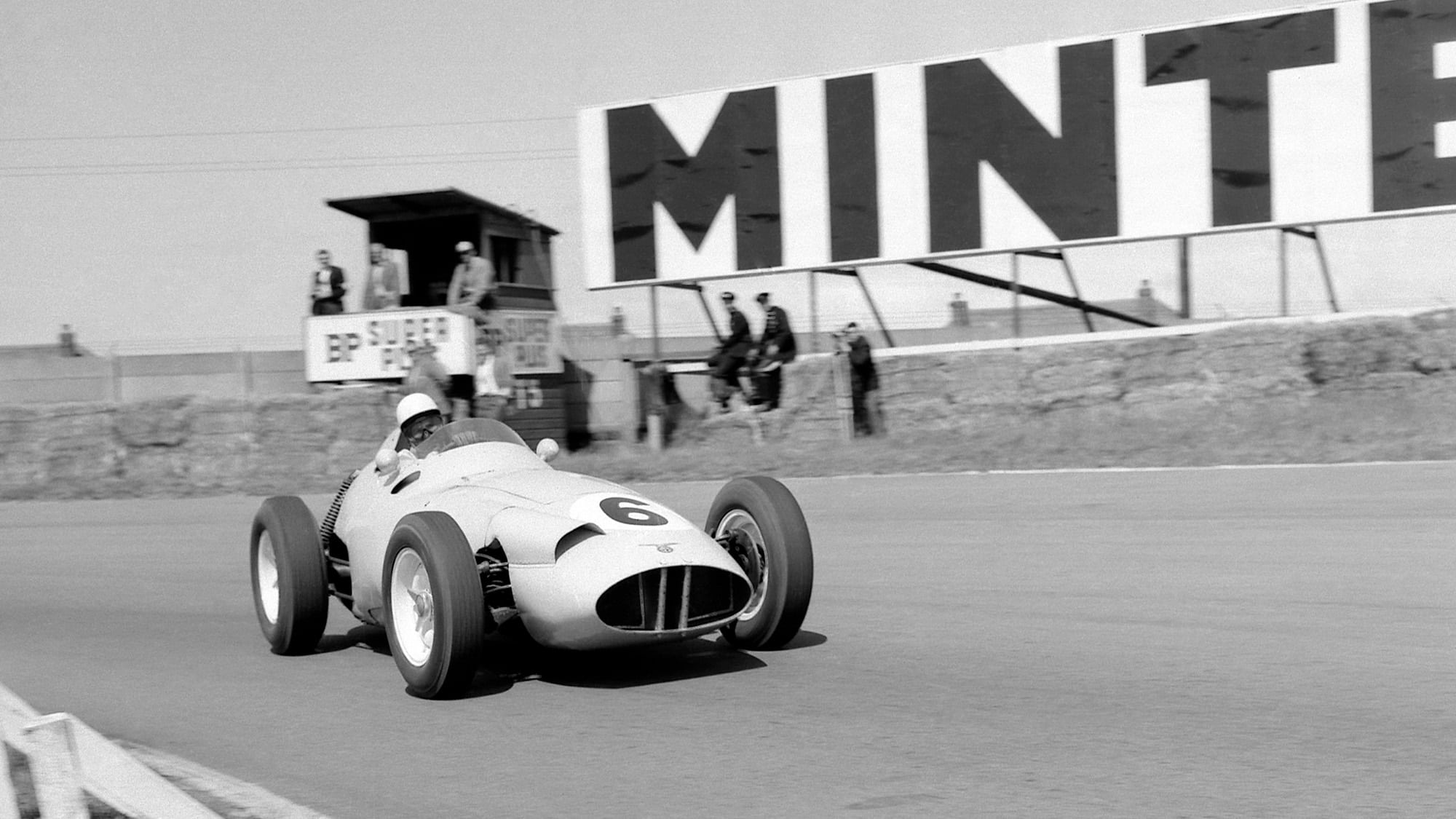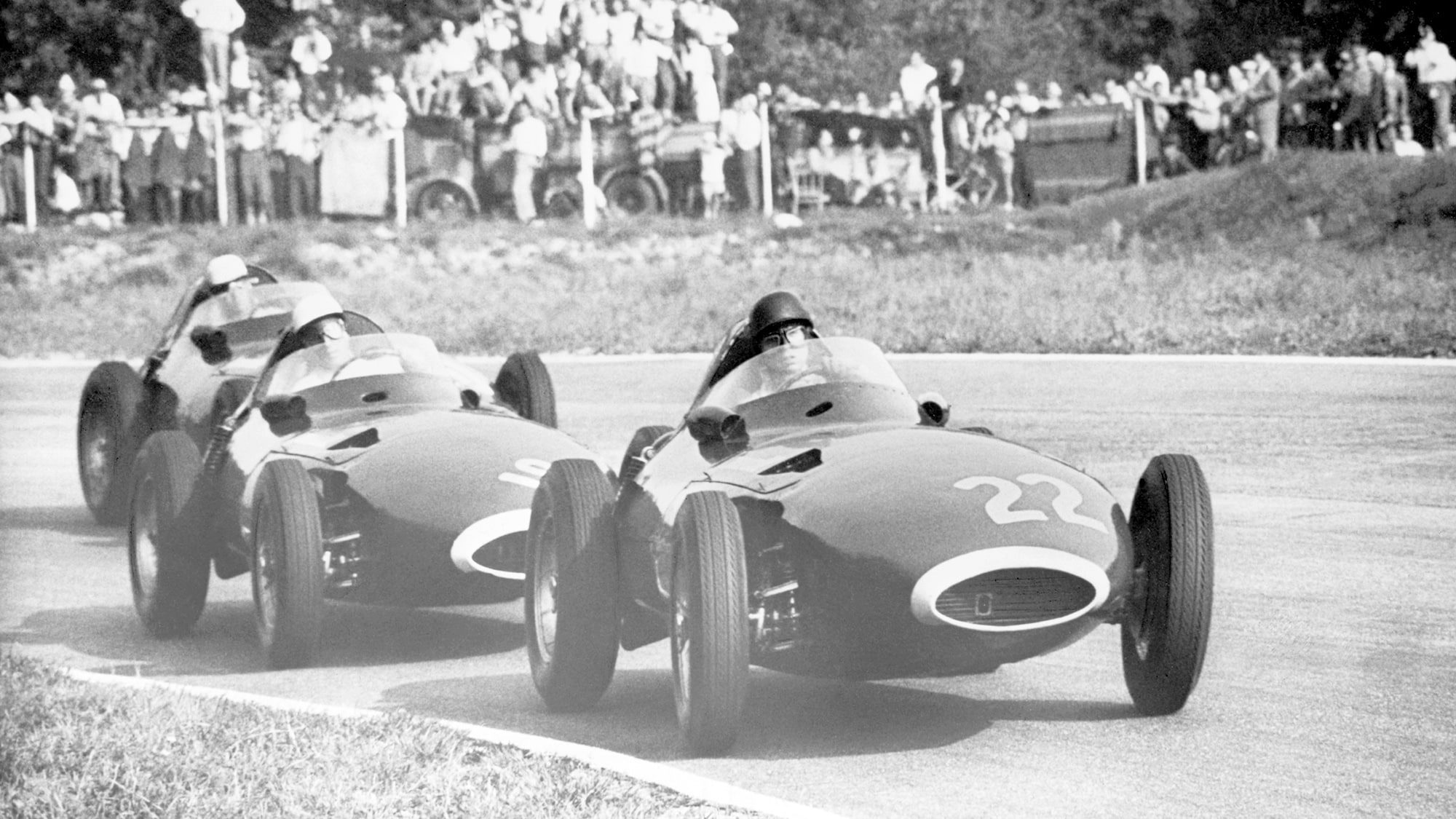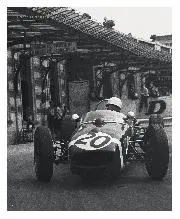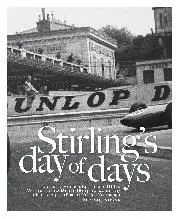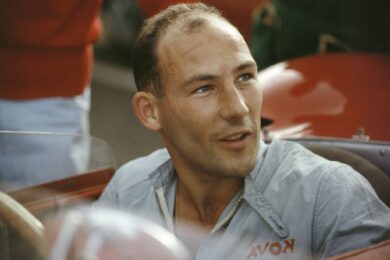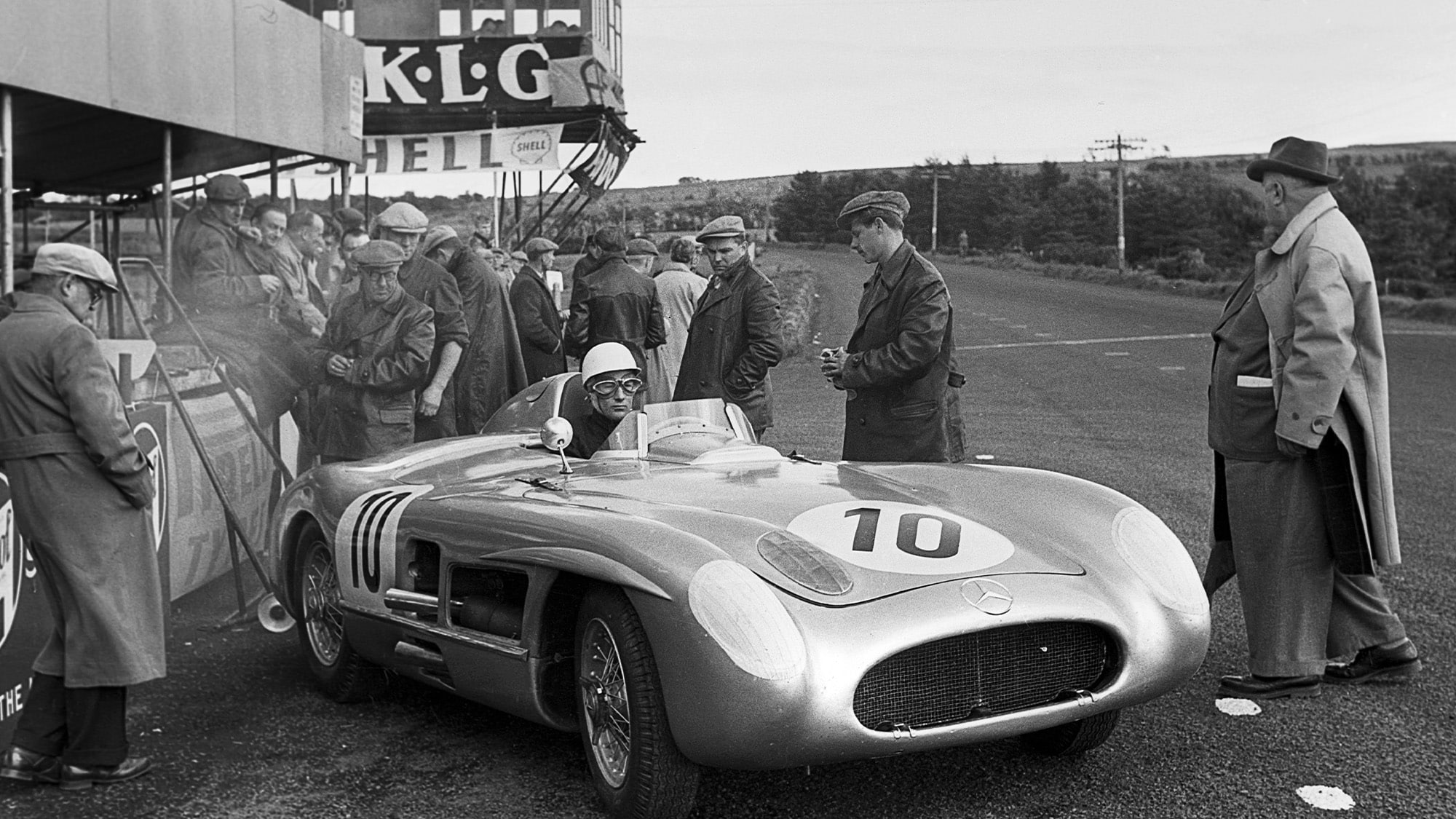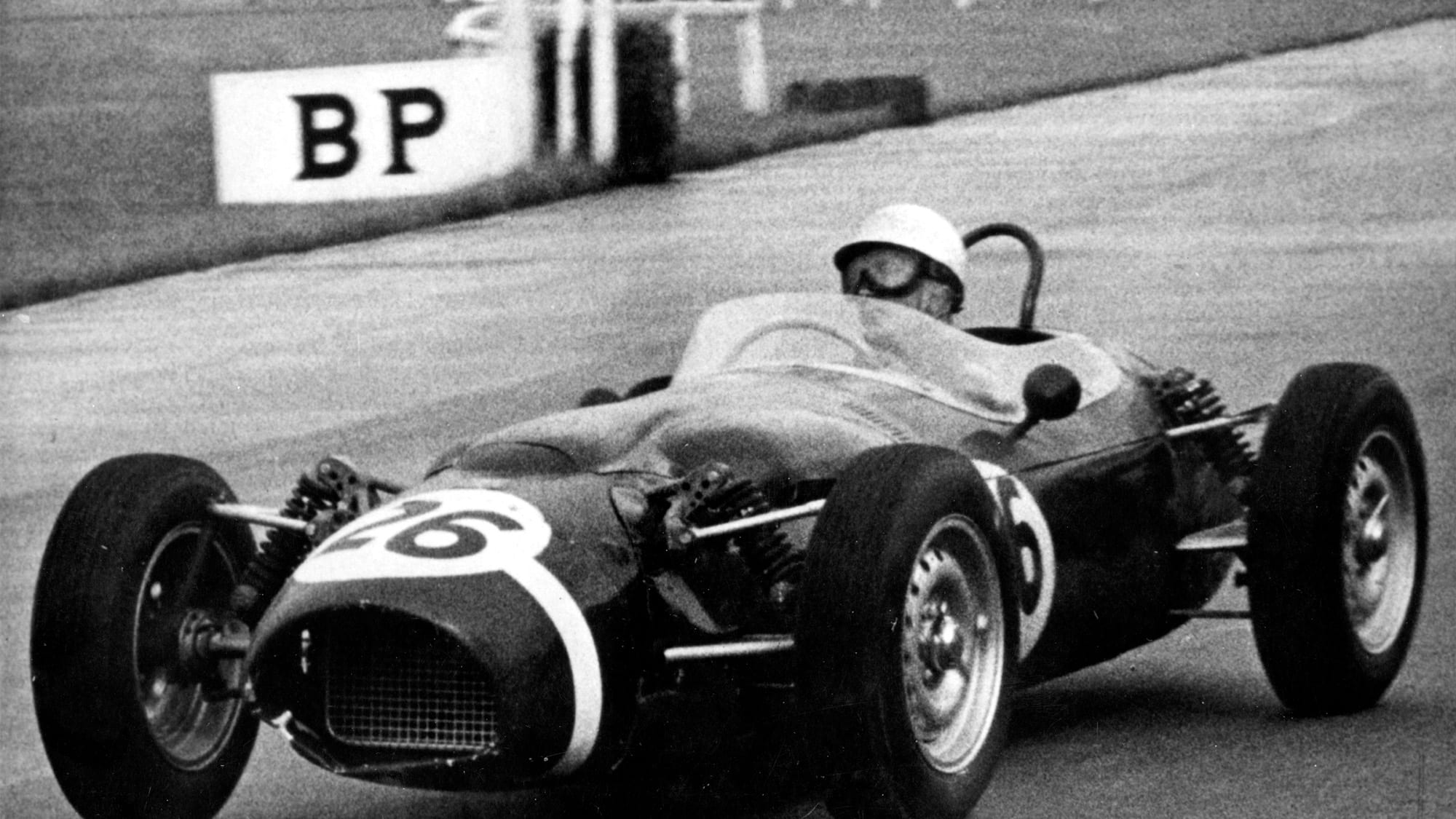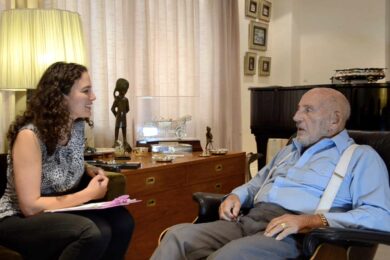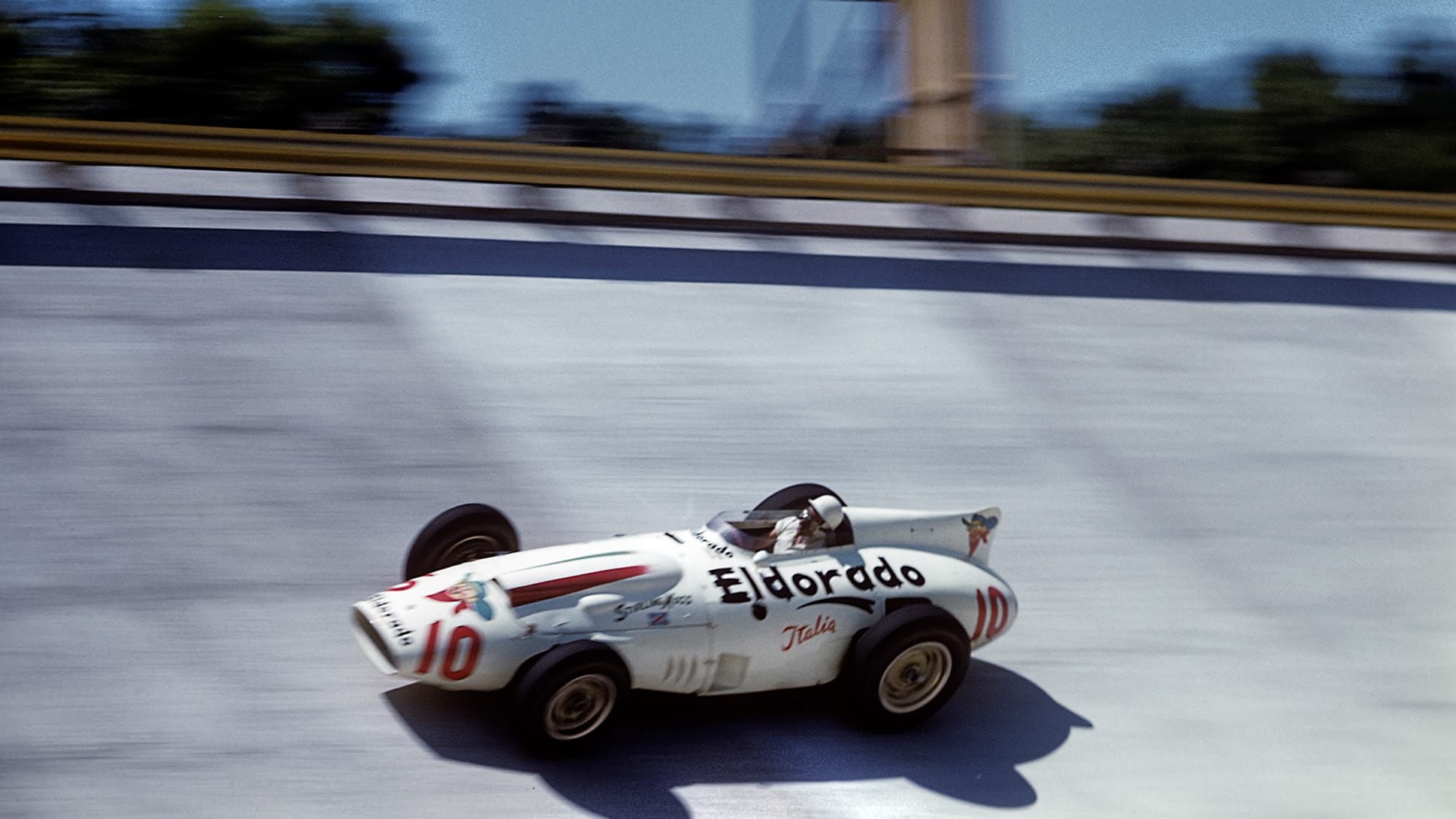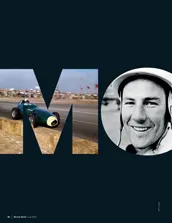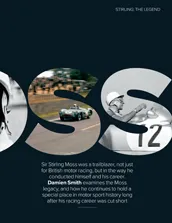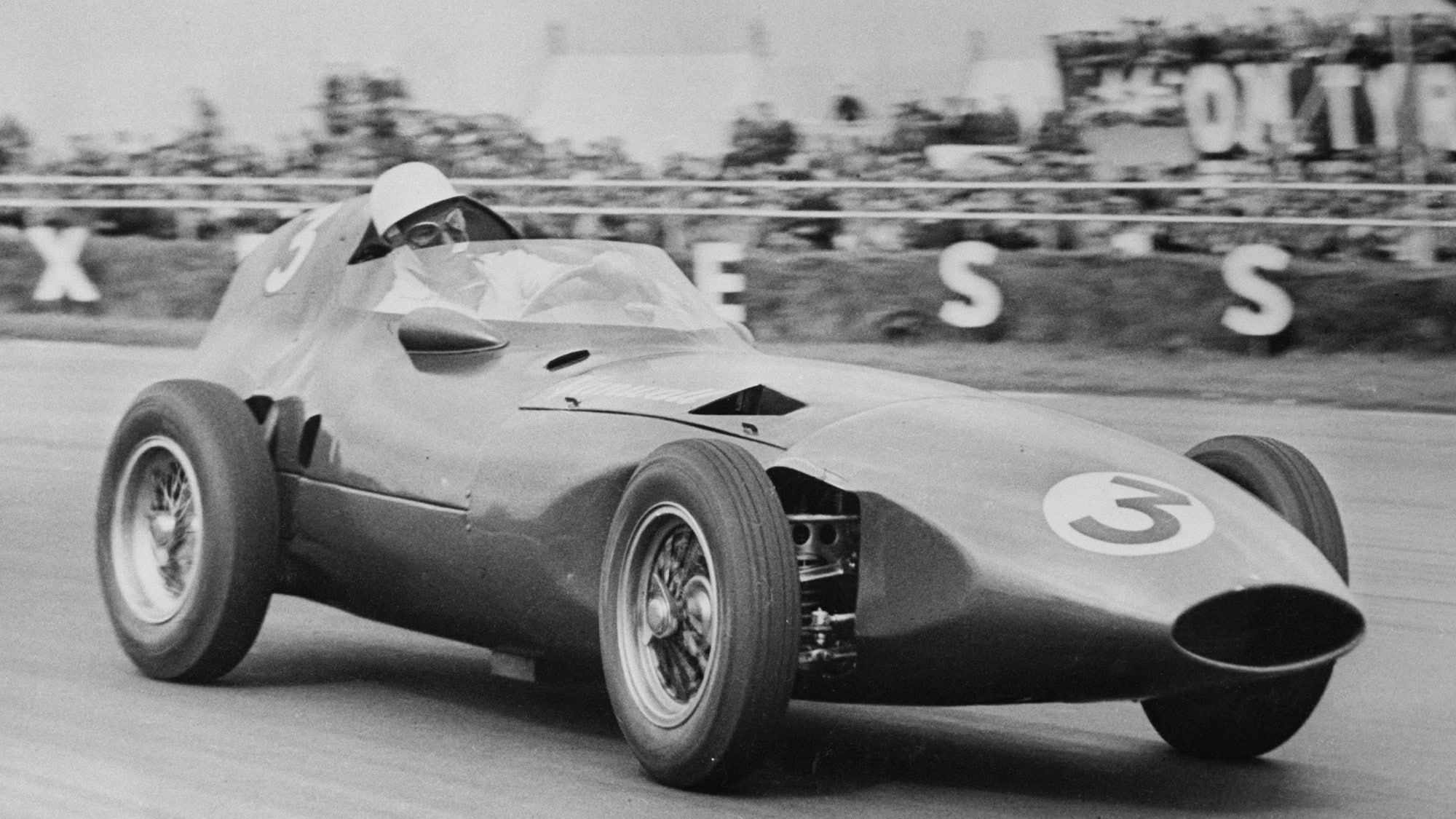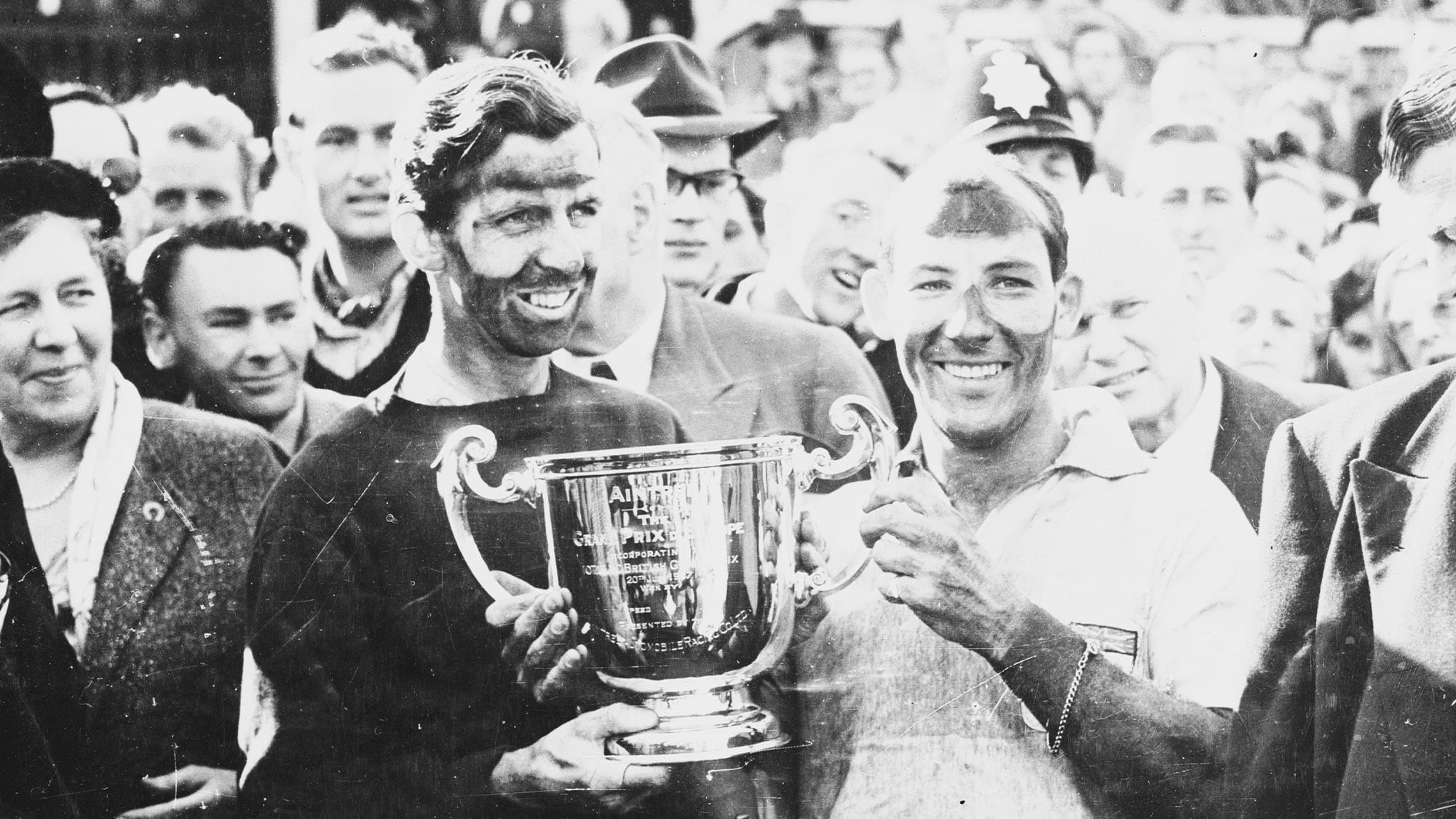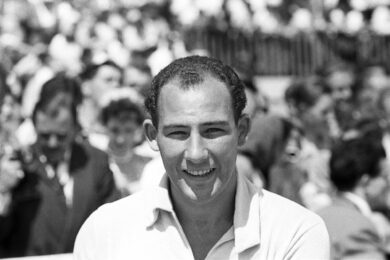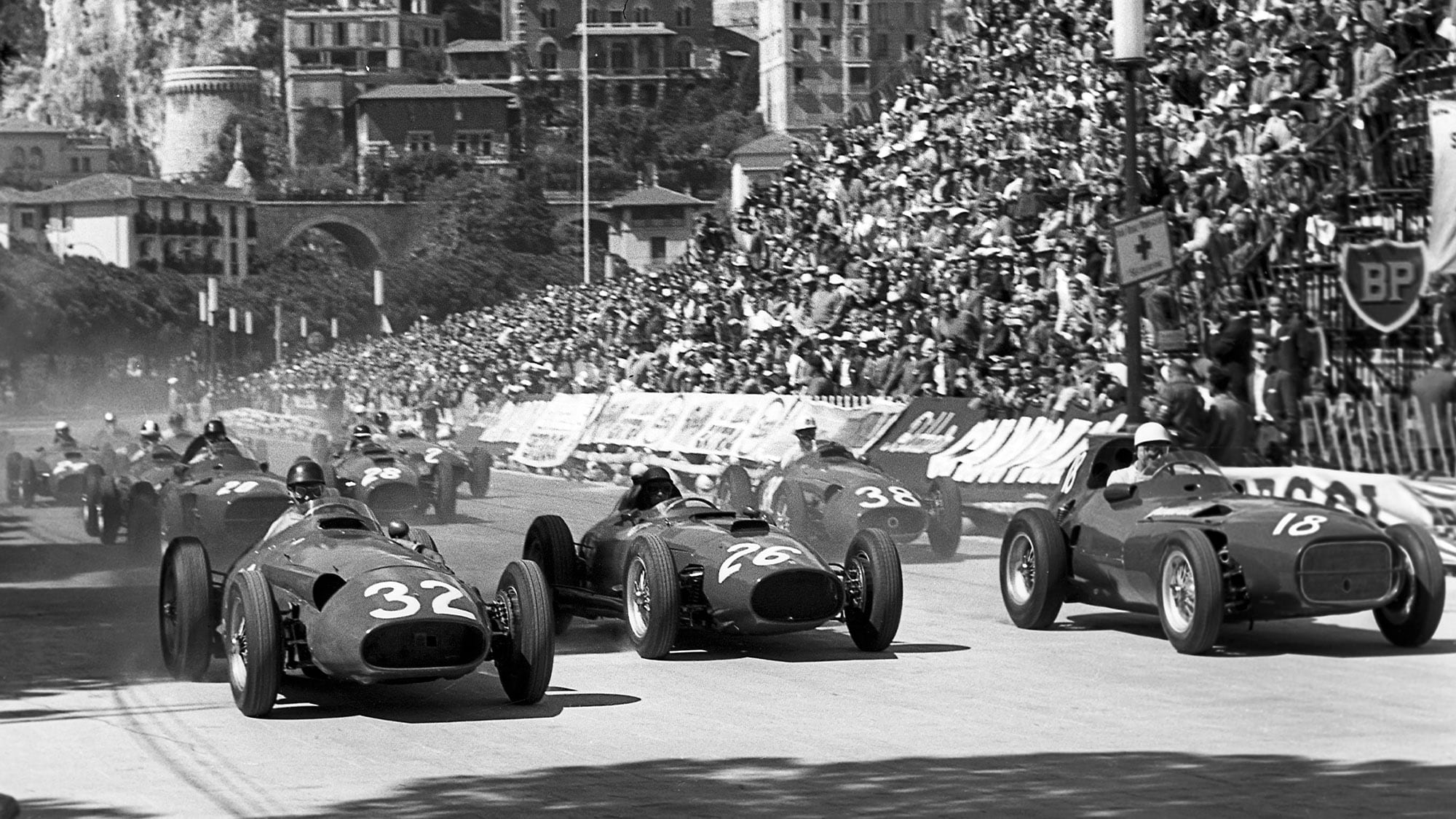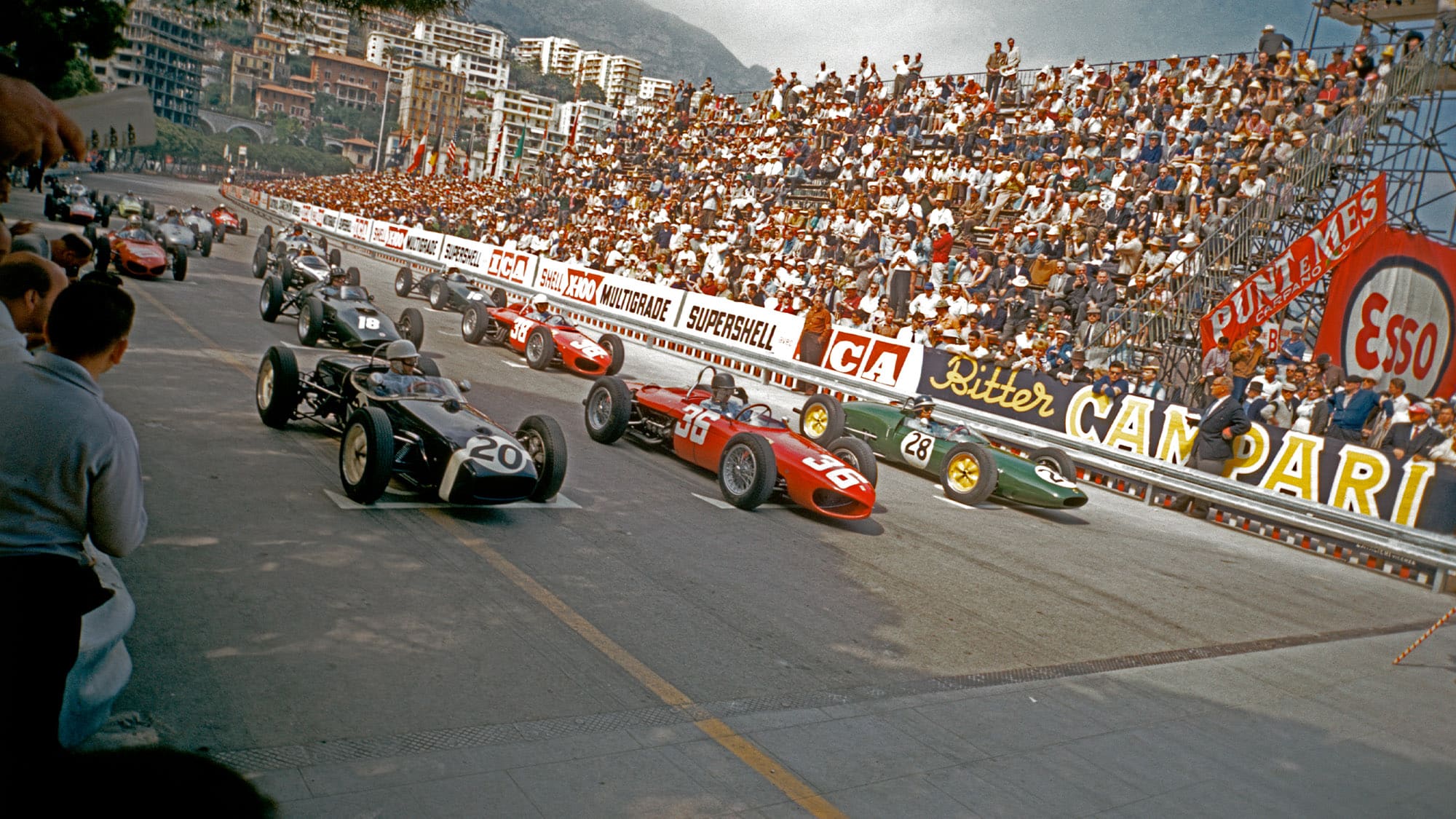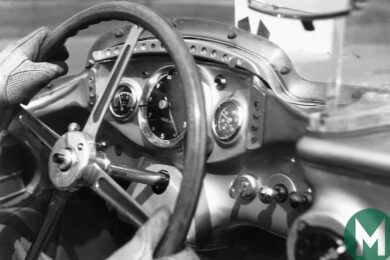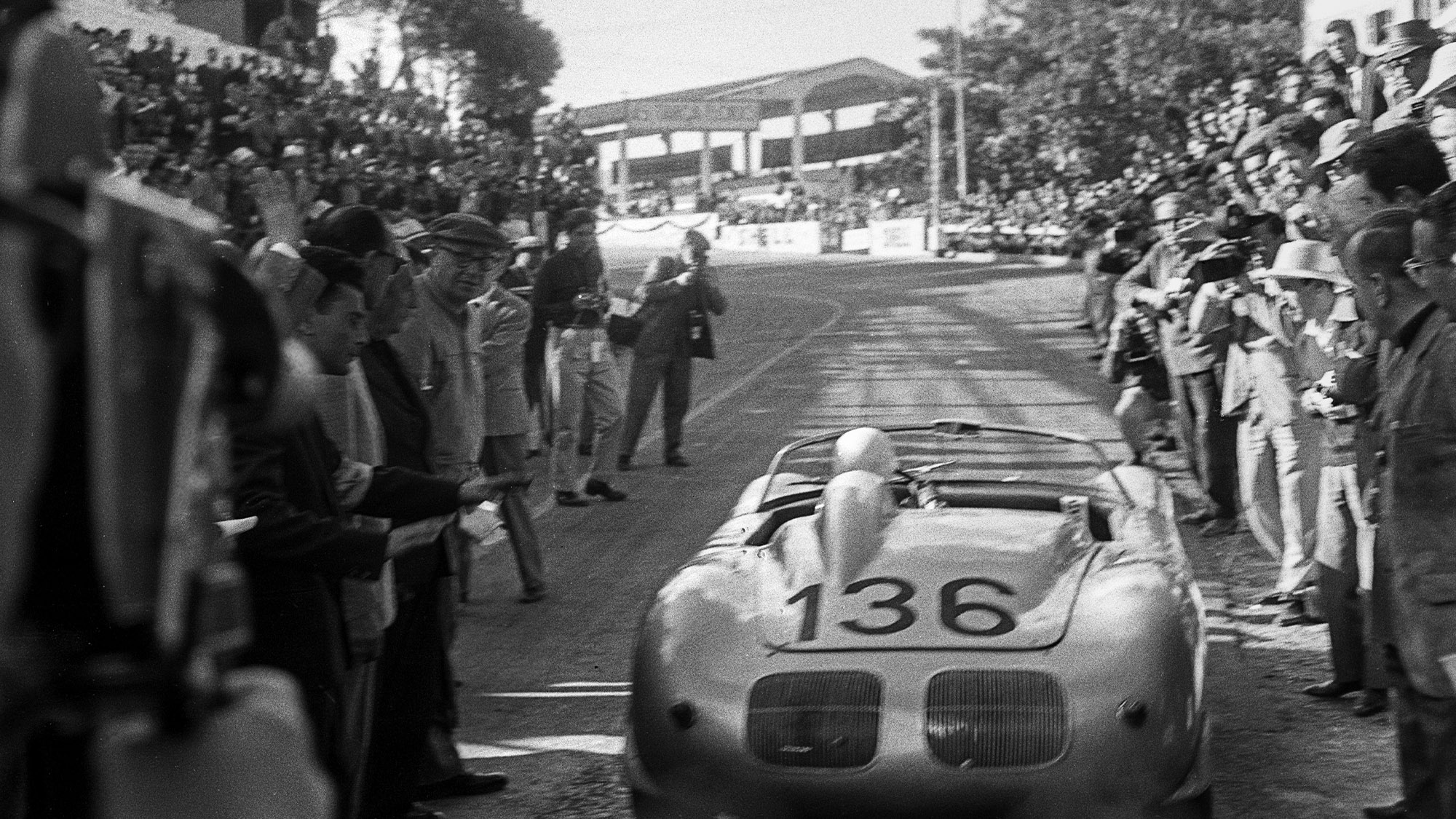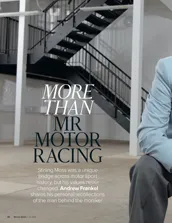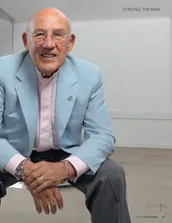At one stage during the race Moss had fastest lap, until Hawthorn, in distant pursuit, responded with a new record. Moss misinterpreted the pit signal that he was shown which said HAW-REC. He perceived it as HAW-REG, or Hawthorn regular, meaning that his rival was no threat. Thus he did not respond to set a quicker time, which would have won him the extra point that was then awarded for fastest lap.
“I normally got the fastest lap. The thing was that there are times when you can make a mistake and I just misunderstood, really, rather than misreading. I misunderstood what it meant. There’s no excuse for it; really and truly I should just have ignored it and just gone for it as I normally would. But the more important time was when Mike went up the escape road.”
This occurred when Hawthorn spun on the final tour as Moss was about to lap him. “He went up there and then he got a push back. And later the stewards said that wasn’t on.”
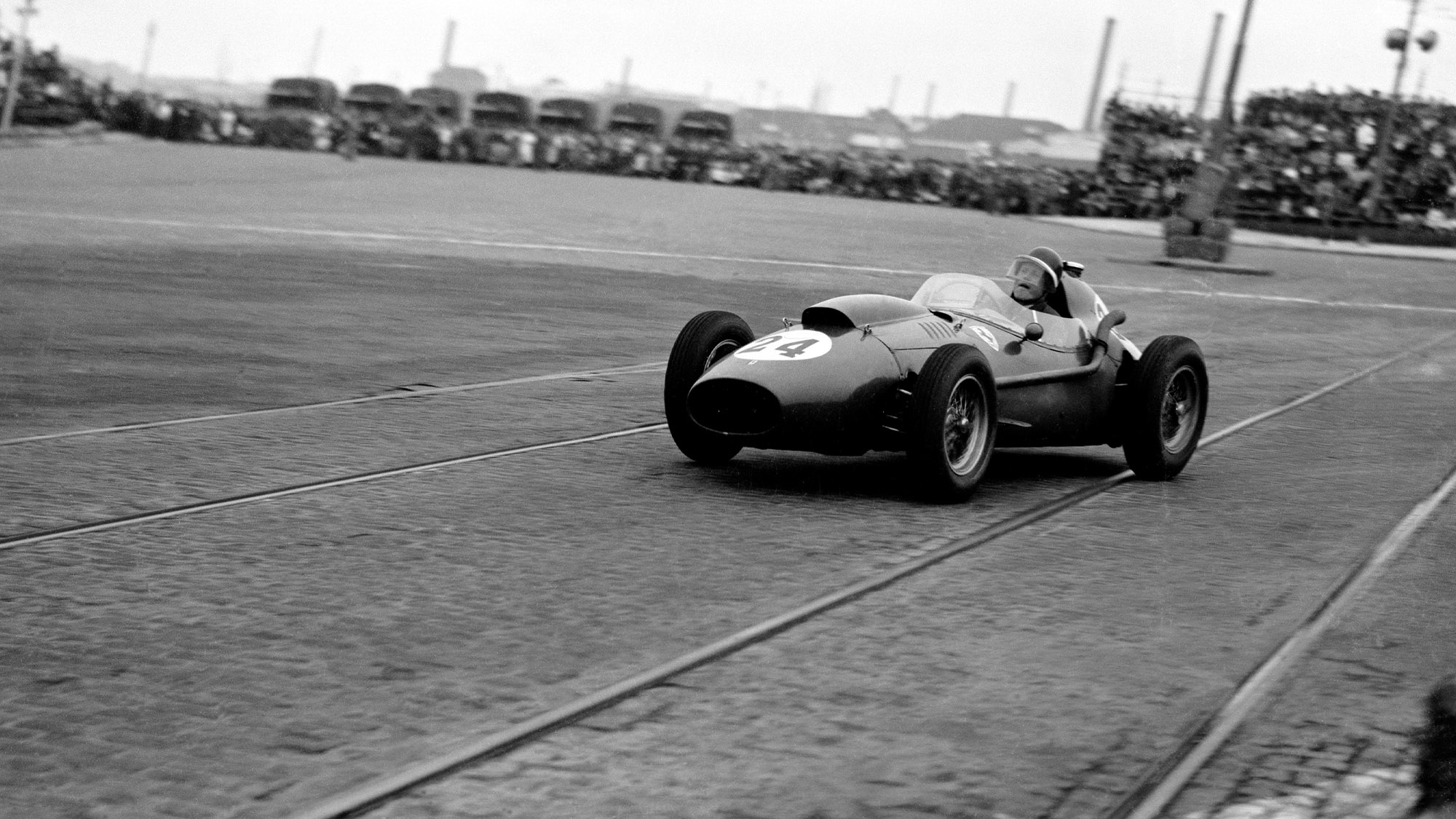
Moss dominated the 1958 Portuguese GP at Oporto, but letting Mike Hawthorn (Ferrari Dino, pictured) unlap himself may have cost him the World Championship
Getty Images
Actually, though Hawthorn pushed the car himself and didn’t have assistance, he was facing exclusion after bump-starting his engine and letting the Ferrari briefly mount a footpath going in the opposite direction to the circuit, an area not designated as race track. The situation was getting unpleasant, when Moss voluntarily stepped forward in his defence. At the time nobody could know how crucial this incident was to be, but in any case there would have been no pleasure to be gained from denying his rival points on a technicality.
“To me, Mike shouldn’t have been disqualified. Rather like this black flag thing with Schumacher, really. The sport was different then so one can’t compare it, but I just felt that it was quite wrong that he should be disqualified. And I put forward the idea that he was still on the track, albeit the escape road, which they accepted. And it turned out that it lost me the title. But it’s a case of what winning means to you.”
“I thought, well, Mike drinks, and does everything that I would like to do. What the hell, I’m going to go out and enjoy myself”
There was another point, too. Had Moss not allowed Hawthorn to unlap himself Mike would then have had another full lap to complete, with fading brakes, which itself might have allowed his own team-mate Stuart Lewis-Evans to pose a challenge for second, thus depriving Hawthorn of more points. Hindsight is the easy part, though, 20/20 vision. Far better to focus instead on Moss’s behaviour at that moment and in the race’s aftermath, which at the time and forever after would speak so eloquently of his nature and sportsmanship. When he’d lapped the Ferrari, Stirling had taken pity on Hawthorn’s dejected look and allowed him to go by again.
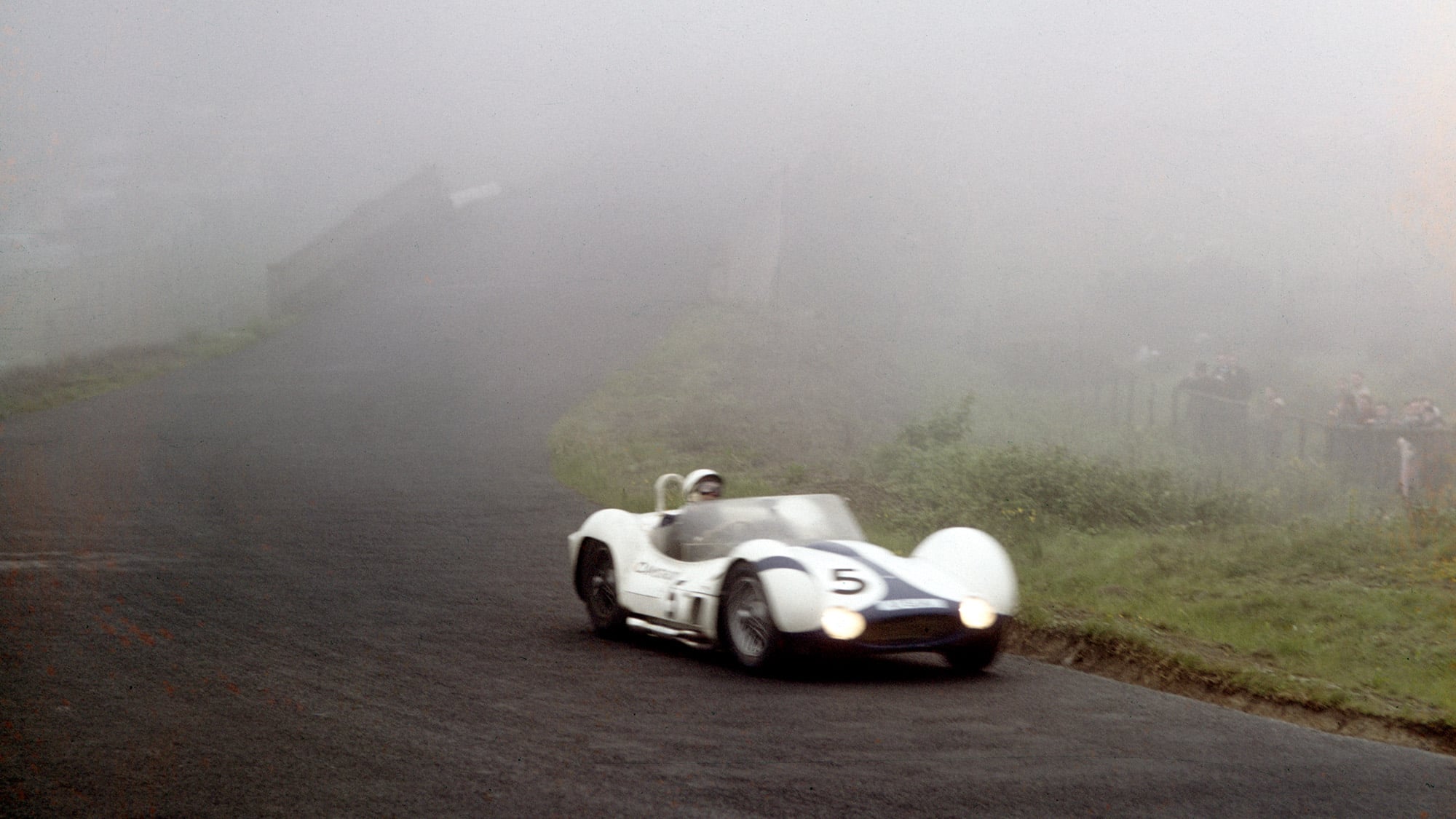
Fog-bound: the weather did not stop Moss pulling off a Nürburgring 1000km hat-trick in 1960, sharing a Camoradi Maserati Birdcage with Dan Gurney
Klemantaski Collection/Getty Images
“My philosophy is that racing is what matters. I remember going to the American Grand Prix many years later when Emerson Fittipaldi was coming up for his world title at Watkins Glen. And he could have won the race. But he didn’t. He drove to be fourth. And I thought what a farce that is. To make a championship where the man who is the best — or one hopes is the best — isn’t trying to win. It’s quite wrong, but you can’t stop it.”
At the end of that turmoiled season Moss spent time analysing his feelings and coming to terms with the frustration of his greatest ambition. From then on, the world title would never be quite so important to him. His outlook began to mellow.

